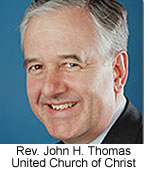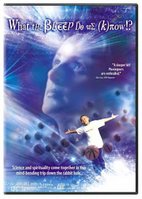
Last week at the Fosdick Convocation, I had an epiphany--well, sort of. Maybe it was more of a lightbulb flashing brightly above my head. I had listened to one of the lectures about the parable of the Sheep and the Goats. The parable goes like this, it is from the Book of Matthew:
Matthew 25:31-46
"When the Son of Man comes in his glory, and all the angels with him, he will sit on his throne in heavenly glory. All the nations will be gathered before him, and he will separate the people one from another as a shepherd separates the sheep from the goats. He will put the sheep on his right and the goats on his left.
"Then the King will say to those on his right, 'Come, you who are blessed by my Father; take your inheritance, the kingdom prepared for you since the creation of the world. For I was hungry and you gave me something to eat, I was thirsty and you gave me something to drink, I was a stranger and you invited me in, I needed clothes and you clothed me, I was sick and you looked after me, I was in prison and you came to visit me.'
"Then the righteous will answer him, 'Lord, when did we see you hungry and feed you, or thirsty and give you something to drink? When did we see you a stranger and invite you in, or needing clothes and clothe you? When did we see you sick or in prison and go to visit you?'
"The King will reply, 'I tell you the truth, whatever you did for one of the least of these brothers of mine, you did for me.'
"Then he will say to those on his left, 'Depart from me, you who are cursed, into the eternal fire prepared for the devil and his angels. For I was hungry and you gave me nothing to eat, I was thirsty and you gave me nothing to drink, I was a stranger and you did not invite me in, I needed clothes and you did not clothe me, I was sick and in prison and you did not look after me.'
"They also will answer, 'Lord, when did we see you hungry or thirsty or a stranger or needing clothes or sick or in prison, and did not help you?'
"He will reply, 'I tell you the truth, whatever you did not do for one of the least of these, you did not do for me.'
"Then they will go away to eternal punishment, but the righteous to eternal life."
***
Hearing this parable and the subsequent sermon, my mind found itself wandering over to the Roman Catholics who teach in
transubstantiation, the blessing that turns the bread and wine into the actual body and blood of Christ during their Holy Communion. "This is my body..." they say and mean quite literally. I remember asking a priest friend of mine why they take Jesus' words so literally when it was "obviously" a symbolic act. My priest friend said, "Bo, Jesus said, 'This IS my body,' I don't see why you think that is symbolic."
My conversation with my priest friend happened almost a decade ago and I was thinking about that when I read and heard the parable of the Sheep and the Goats when Jesus said, "In as much as you do it to the least of these my brothers and sisters, you do it to me." How much more, I thought, could Jesus' words be more real and non-symbolic that reading this parable.
As a pastor in the United Church of Christ, we do not believe in transubstantiation during the communion celebration but many of us do believe in a
real presence. Borrowing heavily from the Lutherans, we see a mystery occur when God is present during the communion celebration. But our ancestors of the faith certainly believed communion meant something much more and made it one of the
sacraments of the church.
At the Council of Trent, back in 1545, a conversation and decisions were made limiting what the Church would allow as its Sacraments. Prior to that meeting, there were many sacraments. Worrying that putting too much faith into a sacrament might negate the grace involved, the Catholic Church decided that there would only be 7 of them: Baptism, Confirmation, Penance, The Eucharist, Extreme Unction, Orders (the call of the clergy), and Matrimony.
Most Protestant Churches, however, have rejected all but two: baptism and Holy Communion (the Eurcharist). The idea is that in these two situations, it can be proved that they were used by Jesus and the early church aside from later church validation.
Understanding the sacraments and their history can be a tedious study--one that I plan to engage at great length. But in spite of all that has been considered a sacrament, I am surprised that one element has been missing from the entire history for its consideration: the Sacrament for the Poor (and the poor in Spirit). How come? Obviously the care of the poor, the lonely, the imprisoned, the naked and the homeless was of primary concern for Jesus. And we know the early church took this very seriously too. How come our identity as Christians has not been tied to this most important and defining characteristic that Jesus identified as essential to the life of the Christian?
One argument may lie in the challenge that if the care of the poor is considered a 'work of faith' then what about grace? I have read about this and would love to link you to a story of it but the linking functions with blogger is down at the moment. I'll post a link in a few days.
But it is arguments such as this that highlight a point: sometimes we get so concerned with theology that we miss the point altogether. It is one thing to hold care of the poor as an important task of the church--it is something else entirely when we say that the care for the poor defines a Christian. If we say the latter, surely we run into theological conundrums-- and yet, how can we miss Jesus' point-blank declaration that if we don't care for the poor, we 1) don't care for him, and 2) we'll go to hell. You can't get any clearer than that.
My personal opinion about Jesus and the church isn't necessarily a neat one. Jesus was often frustrated with the pious and devoutly religious and I wonder if he had intended for the early church to become so rigid in their theology. I think the theology of Paul is a lot more complicated than what Jesus had in mind. Paul seems concerned that our understanding of God fit into a nice and neat systematic theology textbook--whereas Jesus was more concerned with how we live out our faith. Often, Jesus called those who put theology above Christian practice hypocrites. And yet, Jesus obviously meant for the church to survive and thrive.
Where did we go wrong?
In the coming weeks, I will be writing my thoughts about sacraments and a radical idea to make and create a Sacrament to the Poor (to also include the poor in Spirit). I am currently in talks with my Conference Minister in Baltimore as well as a friend who works as a Worship Team member in the Cleveland office, the home of our denomination. Considering how to move forward with this consideration will include many conversations--here, in the pulpit, and elsewhere.
I invite you, dear reader, to join with me on this journey. Let us talk, ask, and get acquainted with our faith tradition--and see if in this way, we might ask ourselves that reoccuring question that each new member of the UCC is encouraged to do: to reinterpret what in means to be a Christian in this and every generation.
 John Thomas, the President of the UCC, wrote a brilliant mini-history of the United Church of Christ. I found it by checking out the UCC's blog over at i.ucc.org. He also wrote to remind us that, in his opinion, "it is better to be a divided church who stands for something than be a united church that stands for nothing." As the UCC is gearing up to celebrate our 50th Anniversary of the merger of the Congregational Christian Church and the Evangelical and Reform Churches, Thomas writes about that history as well as about what the UCC has stood for, both historically and more recently.
John Thomas, the President of the UCC, wrote a brilliant mini-history of the United Church of Christ. I found it by checking out the UCC's blog over at i.ucc.org. He also wrote to remind us that, in his opinion, "it is better to be a divided church who stands for something than be a united church that stands for nothing." As the UCC is gearing up to celebrate our 50th Anniversary of the merger of the Congregational Christian Church and the Evangelical and Reform Churches, Thomas writes about that history as well as about what the UCC has stood for, both historically and more recently.






